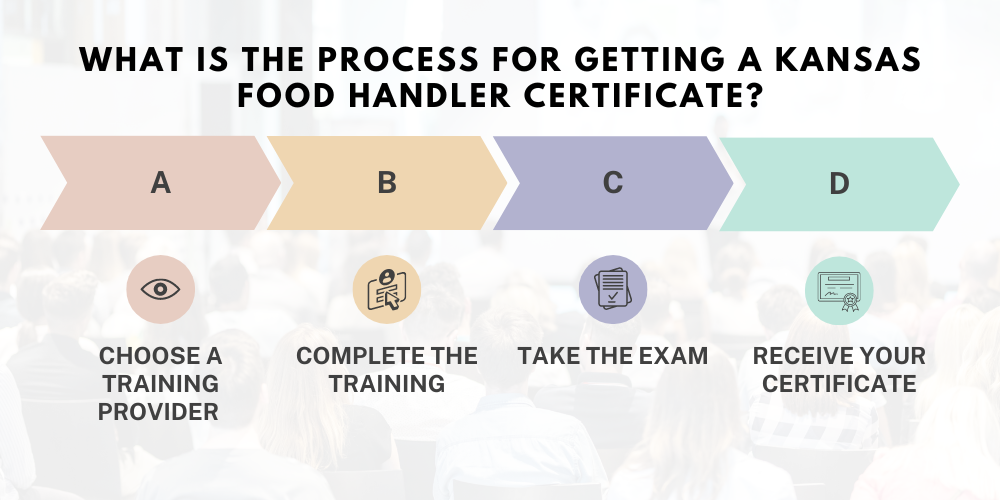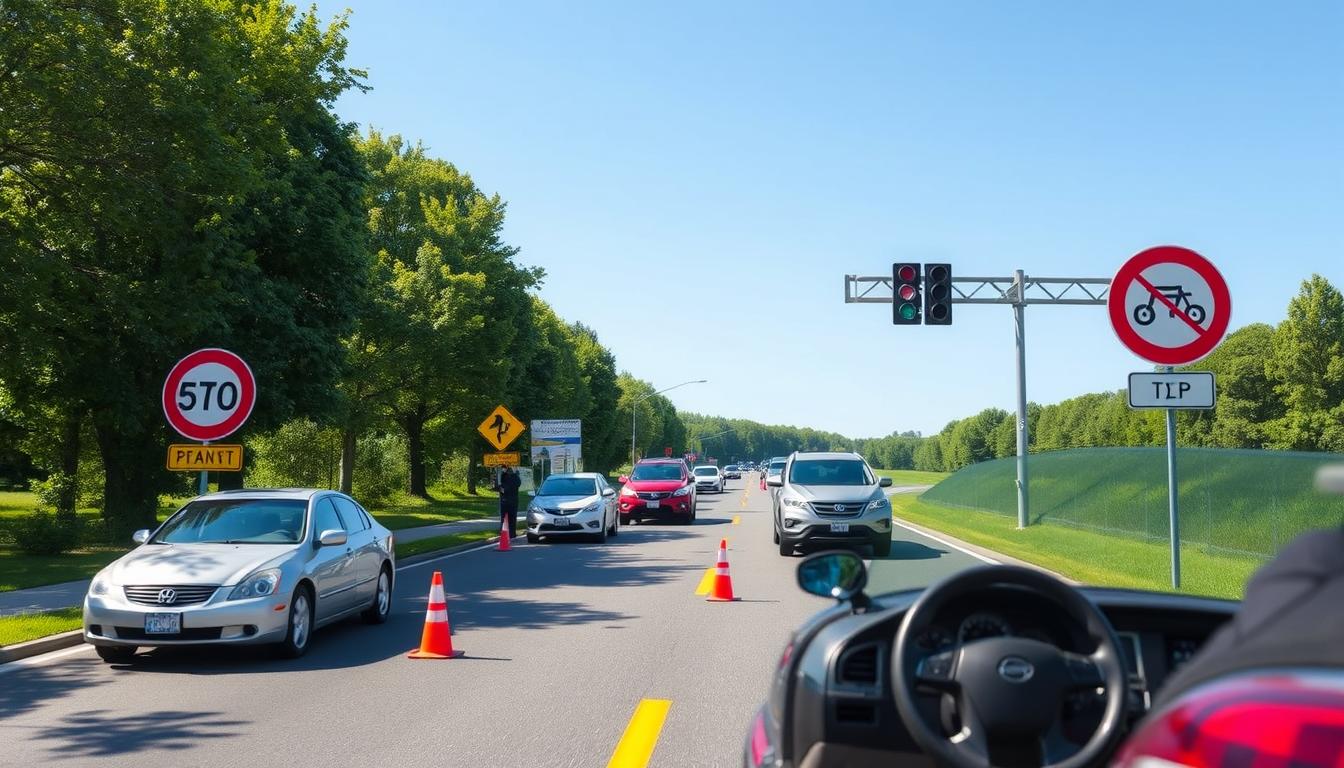Kansas Food Handlers Card Certification Online 2024
The Kansas Food Handlers Card Training is a program that educates individuals who work in the food service industry about food safety principles and best practices.
This training aims to prevent foodborne illness and ensure that all food served to the public is safe and free from contamination.
Food Handler’s Training Course – Kansas — English & Spanish
Why Should I Take Food Handler Training In Kansas?
If you work in the food service industry in Kansas, taking a food handler training course is essential for several reasons:
- Compliance With State Regulations: The Kansas Department of Agriculture requires all food service employees to complete a food handler training course and obtain a food handlers card. By taking the course, you will meet this requirement and avoid penalties or fines for non-compliance.
- Prevention Of Foodborne Illnesses: Foodborne illnesses can have severe consequences for the public and the food service establishment. By learning about proper food handling, preparation, and storage techniques, you can help prevent the spread of foodborne illnesses and protect your customers and your business.
- Improved Job Performance: Food handler training courses cover many topics, including hygiene, sanitation, and food safety regulations. By taking the course, you will gain valuable knowledge and skills to improve your job performance and help you advance in your career.
- Increased Customer Confidence: Customers expect the food they consume to be safe and free from contamination. Demonstrating your food safety principles knowledge through your food handlers card can increase customer confidence in your establishment and potentially attract new business.
Allergen Awareness Training Course – Kansas — English & Spanish
Does Kansas Require Food Handler Training?
Yes, Kansas requires food handler training for all food service employees.
The Kansas Food Code published by the Kansas Department of Agriculture mandates that all food service establishments must have at least one person on staff with a food handlers card.
The card is obtained by completing an approved food safety training course.
The goal of this requirement is to ensure that all food service employees have a basic understanding of food safety principles, such as
- Proper food handling;
- Preparation; and
- Storage techniques
The state aims to prevent foodborne illnesses and protect public health by requiring food handler training.
However, some local health departments in Kansas, like the City of Leavenworth, require all employees who handle food to have a food handler card issued by the City of Leavenworth.
So it’s always important to check with your local health department for specific requirements in your area.
Food Protection: Manager’s Exam (In-Person Proctoring) – Kansas — English & Spanish

What Is the Process for Getting a Kansas Food Handler Certificate?
Obtaining a Kansas food handler certificate involves completing a training program accredited by ANSI and passing an exam.
Here are the steps to get a Kansas food handler certification:
Choose A Training Provider
Kansas food handler training is available online or in person through various providers.
You can take a food handler course online from Coggno.
It is a convenient and effective way to fulfill the training requirements for obtaining a food handler certificate.
Coggno online food handler courses offer several advantages, including flexibility in scheduling and the ability to complete the training at your own pace.
Our courses are typically self-paced, so you can take as much time as you need to study the material and complete the course.
Complete The Training
The training can be completed in a few hours and is self-paced. You must complete all the required modules and pass the associated quizzes.
Take The Exam
After completing the training, you must take an exam to demonstrate your knowledge of food safety and sanitation practices.
Receive Your Certificate
You will receive your Kansas food handler certificate upon passing the exam.
Food Protection Manager Course (Lessons Only) – Kansas — English & Spanish
Does the Coggno Course Meet The Requirements for My State’s Food Handlers Card?
The Coggno training and course meet all Kansas food handlers’ card requirements.
If you’re looking for a way to get your state’s required certificate without leaving the comfort of your home or office, take advantage of our convenient online training.
We offer free unlimited access, so there’s no limit on how many times you can log in and retake quizzes until they’re perfect!
Food Protection Manager Course (Training And Exam Bundle – Remote Proctor Exam) – Kansas — English & Spanish
What Is The Validity Of The Kansas Food Handlers Card?
In Kansas, the validity of the food handlers card is three years from the date of issue.
After three years, the card must be renewed by completing an approved food safety training course and passing an exam.
However, some local health departments in Kansas may have additional requirements for renewing the food handlers card, such as completing a refresher course or additional training.
It’s always a good idea to check with your local health department for specific requirements in your area.
Furthermore, it’s also essential to keep your food handlers card current and up-to-date.
If your card expires, you may be required to retake the training course and pass the exam again to obtain a new card.
Moreover, some food service establishments may require employees to always have a valid food handlers card as a condition of employment.
Food Protection Manager Course – (Training And Exam Bundle – In-Person Exam) – Kansas — English & Spanish
What Jobs Can I Get In Kansas With My Food Handler License?
Having a food handlers card can open up a range of job opportunities in the food service industry in Kansas. According to the Kansas Restaurant and Hospitality Association (KRHA), there were 5,328 places in Kansas in 2018.
It demonstrates to potential employers that you have the knowledge and skills to handle food safely and prevent the spread of foodborne illnesses.
With a food handler license in Kansas, you will be qualified to work in various jobs in the food service industry.
Here are some examples of jobs that you may be eligible for:
- Restaurant And Fast Food Worker: Many restaurants and fast food establishments require all employees to have a valid food handlers card.
- Catering And Banquet Staff: If you enjoy working at events and banquets, your food handlers card can help you secure a catering or banquet staff member job.
- Food Truck Worker: The food truck industry is growing in popularity, and many food truck operators require their staff to hold a food handler’s card.
- Coffee Shop Or Bakery Worker: If you are passionate about coffee or baked goods, your food handlers card can help you secure a job at a coffee shop or bakery.
- Food Service Manager: With a food handlers card and additional experience or education, you may be eligible for a managerial position in the food service industry
Food Protection: Manager’s Exam (Remote Proctoring) – Kansas — English & Spanish
Best Place To Find Information About Food Safety In Kansas
The best place to find information about food safety in Kansas is the Kansas Department of Agriculture’s Food Safety and Lodging program. This program oversees food safety regulations and inspections for all food service establishments in the state.
Furthermore, the website provides information on
- Food safety regulations;
- Foodborne illnesses;
- Food safety training requirements; and
- Other related topics
You can also find information on obtaining a food handlers card, renewing your card, and searching for approved training providers.
Another website is the Kansas Department of Health and Environment. This site provides information on specific foodborne illnesses and reports any food-related illness incidents.
Additionally, your local health department may also have information and resources available on food safety in your area.
They may offer additional training or resources for food service establishments in their jurisdiction.










